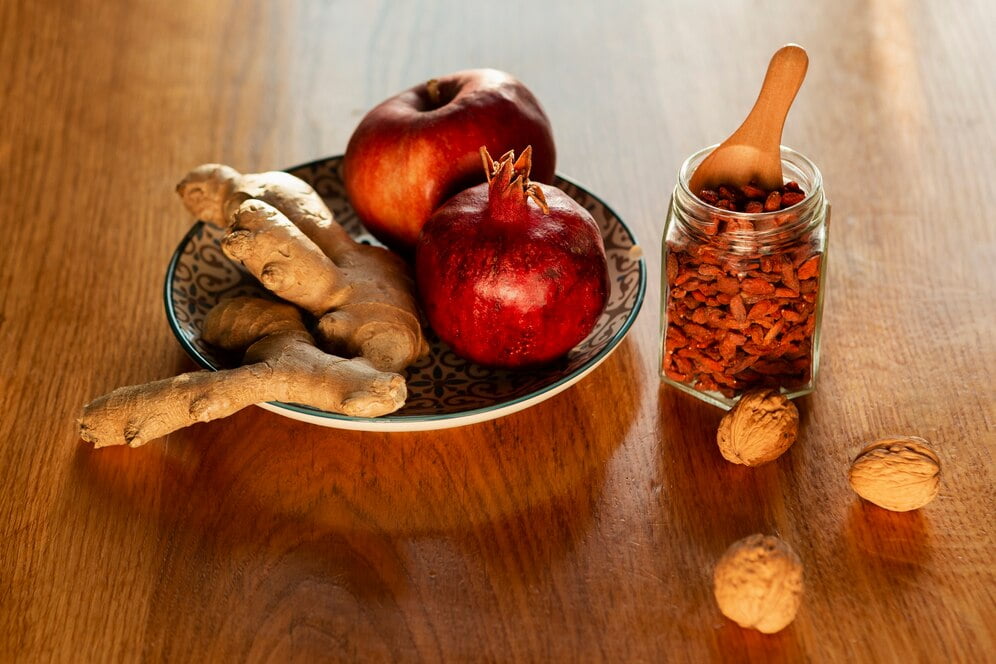The kidneys play a vital role in maintaining the body’s overall health by filtering waste products from the blood, balancing body fluids, regulating blood pressure, and managing electrolytes. Ayurvedic medicine, a traditional system of medicine from India, offers natural and holistic approaches to maintaining kidney health and treating kidney-related issues. By focusing on balance and harmony within the body, Ayurveda provides effective treatments for various kidney conditions, leveraging the power of herbs, diet, and lifestyle changes.
Understanding Ayurveda
Ayurveda, which translates to “the science of life,” is a holistic system of medicine that has been practiced in India for over 5,000 years. It emphasizes the balance of the body’s three doshas—Vata, Pitta, and Kapha—and the use of natural remedies to promote health and prevent disease. Ayurveda considers the kidneys as vital organs governed primarily by the Vata and Kapha doshas. Imbalances in these doshas can lead to kidney-related problems, which can be effectively managed through Ayurvedic practices.
Ayurvedic Perspective on Kidney Health

According to Ayurveda, the kidneys are essential organs responsible for filtering and excreting waste, maintaining fluid balance, and supporting overall vitality. Kidney health is closely linked to the health of the urinary tract (Mutravaha Srotas) and the body’s detoxification processes (Apana Vayu). Imbalances in the doshas, particularly an aggravated Vata or Kapha, can disrupt kidney function, leading to various conditions such as urinary tract infections (UTIs), kidney stones, and chronic kidney disease (CKD).
Common Kidney Disorders and Ayurvedic Treatments
Urinary Tract Infections (UTIs)
UTIs are common infections that affect the urinary system, including the kidneys. Ayurveda treats UTIs with herbs that have antimicrobial, anti-inflammatory, and diuretic properties.
- Herbs: Gokshura (Tribulus terrestris), Punarnava (Boerhavia diffusa), and Varuna (Crataeva nurvala) are commonly used to treat UTIs. These herbs help to flush out bacteria, reduce inflammation, and promote healthy urinary flow.
- Diet and Lifestyle: Drinking plenty of water, avoiding spicy and acidic foods, and incorporating cooling and soothing foods such as cucumber and coconut water can help alleviate symptoms.
Kidney Stones
Kidney stones are hard mineral deposits that form in the kidneys, causing pain and discomfort. Ayurvedic treatment focuses on dissolving the stones and preventing their recurrence.
- Herbs: Pashanabheda (Bergenia ligulata), Gokshura, and Varuna are effective in breaking down and expelling kidney stones. These herbs have lithotriptic (stone-breaking) and diuretic properties.
- Diet and Lifestyle: Increasing fluid intake, avoiding high-oxalate foods (such as spinach and nuts), and consuming a diet rich in fruits and vegetables can help prevent the formation of kidney stones.
Chronic Kidney Disease (CKD)
CKD is a progressive condition characterized by the gradual loss of kidney function. Ayurveda aims to slow the progression of CKD and improve overall kidney health.
- Herbs: Punarnava, Gokshura, and Guduchi (Tinospora cordifolia) are beneficial for CKD. These herbs have rejuvenating, anti-inflammatory, and diuretic properties that support kidney function.
- Diet and Lifestyle: Following a balanced diet that supports kidney health, managing blood pressure and blood sugar levels, and practicing stress-reducing techniques such as meditation and yoga are crucial in managing CKD.
Ayurvedic Herbs for Kidney Health

Punarnava (Boerhavia diffusa)
Punarnava is a powerful diuretic and anti-inflammatory herb commonly used in Ayurveda to treat kidney and urinary disorders. It helps to rejuvenate kidney cells, reduce inflammation, and promote healthy urine flow. Punarnava is also beneficial in reducing edema (swelling) associated with kidney problems.
Gokshura (Tribulus terrestris)
Gokshura is known for its diuretic, anti-inflammatory, and aphrodisiac properties. It helps to flush out toxins from the kidneys, reduce inflammation, and prevent the formation of kidney stones. Gokshura is also effective in improving overall urinary health and treating UTIs.
Varuna (Crataeva nurvala)
Varuna is a well-known herb in Ayurveda for its ability to dissolve kidney stones and improve urinary function. It has diuretic and anti-inflammatory properties that help in the treatment of urinary tract infections and the prevention of kidney stones.
Guduchi (Tinospora cordifolia)
Guduchi is a rejuvenating herb with strong anti-inflammatory and immune-boosting properties. It helps to protect the kidneys from damage, reduce inflammation, and support overall kidney function. Guduchi is also beneficial in managing conditions like CKD.
Dietary Recommendations for Kidney Health
Ayurveda places great emphasis on diet as a means to maintain and restore health. For kidney health, it is essential to follow a diet that supports the kidneys and balances the doshas.
- Hydration: Drinking plenty of water and herbal teas helps to flush out toxins and support kidney function.
- Cooling Foods: Incorporating cooling foods such as cucumber, watermelon, and coconut water can help soothe and cleanse the kidneys.
- Avoiding Excess Salt: Reducing salt intake helps to prevent water retention and reduce the burden on the kidneys.
- Balanced Diet: Consuming a balanced diet rich in fruits, vegetables, whole grains, and lean proteins supports overall kidney health.
- Avoiding Processed Foods: Limiting processed foods and those high in sugar and unhealthy fats helps to reduce the risk of kidney damage.
Lifestyle Practices for Kidney Health
Regular Exercise
Engaging in regular physical activity helps to maintain a healthy weight, reduce stress, and improve overall health. Exercise supports kidney function by promoting healthy blood flow and reducing the risk of conditions such as hypertension and diabetes, which can affect kidney health.
Stress Management
Chronic stress can negatively impact kidney health. Practicing stress-reducing techniques such as yoga, meditation, and deep breathing exercises can help to balance the doshas and support overall kidney health.
Adequate Sleep
Getting enough restful sleep is crucial for overall health and well-being. Adequate sleep helps to reduce stress, support immune function, and promote the body’s natural detoxification processes, including those involving the kidneys.
Ayurvedic Detoxification for Kidney Health

Ayurveda recommends periodic detoxification (Panchakarma) to remove accumulated toxins (ama) from the body and support kidney health. Panchakarma includes various therapies such as herbal massages, steam baths, and cleansing enemas to cleanse and rejuvenate the body.
Basti (Herbal Enema)
Basti is a key detoxification therapy in Ayurveda that involves the administration of herbal enemas to cleanse the colon and support kidney health. It helps to remove toxins, balance the doshas, and improve overall urinary function.
Swedana (Herbal Steam Therapy)
Swedana involves the use of herbal steam to induce sweating and eliminate toxins from the body. It helps to improve circulation, reduce inflammation, and support kidney function.
Virechana (Purgation Therapy)
Virechana is a cleansing therapy that involves the use of herbal laxatives to eliminate toxins from the body. It helps to balance the doshas, support digestion, and improve overall kidney health.
Final Words
Ayurvedic medicine offers a holistic and natural approach to maintaining kidney health and treating kidney-related disorders. By focusing on balance and harmony within the body, Ayurveda provides effective treatments through the use of herbs, diet, lifestyle changes, and detoxification therapies. Incorporating these Ayurvedic principles into daily life can help support kidney function, prevent kidney diseases, and promote overall health and well-being. As with any medical treatment, it is essential to consult with a qualified Ayurvedic practitioner before starting any new regimen to ensure it is tailored to individual needs and conditions.
FAQ
1. What is Ayurveda?
Ayurveda is an ancient system of medicine that originated in India over 5,000 years ago. It focuses on maintaining balance among the body’s three doshas (Vata, Pitta, and Kapha) and promotes health through natural remedies, diet, and lifestyle changes.
2. How does Ayurveda view kidney health?
In Ayurveda, the kidneys are essential organs governed primarily by the Vata and Kapha doshas. Healthy kidney function is crucial for filtering waste, balancing fluids, and supporting overall vitality. Imbalances in these doshas can lead to kidney-related problems.
3. What are common kidney disorders treated with Ayurveda?
Ayurveda can effectively treat various kidney-related issues, including:
- Urinary Tract Infections (UTIs)
- Kidney Stones
- Chronic Kidney Disease (CKD)
- General kidney health and maintenance
4. Which Ayurvedic herbs are beneficial for kidney health?
Several herbs are commonly used in Ayurveda to support kidney health:
- Punarnava (Boerhavia diffusa): A diuretic and anti-inflammatory herb that rejuvenates kidney cells.
- Gokshura (Tribulus terrestris): Helps flush out toxins and prevent kidney stones.
- Varuna (Crataeva nurvala): Known for dissolving kidney stones and improving urinary function.
- Guduchi (Tinospora cordifolia): Supports kidney function and reduces inflammation.
5. How can Ayurveda help with Urinary Tract Infections (UTIs)?
Ayurveda treats UTIs with herbs like Gokshura, Punarnava, and Varuna, which have antimicrobial and diuretic properties. Additionally, dietary adjustments, such as drinking plenty of water and consuming cooling foods, can help alleviate symptoms.
6. What is the Ayurvedic approach to treating kidney stones?
Ayurveda focuses on dissolving kidney stones and preventing their recurrence using herbs such as Pashanabheda, Gokshura, and Varuna. Dietary recommendations include increasing fluid intake and avoiding high-oxalate foods.
7. Can Ayurveda help with Chronic Kidney Disease (CKD)?
Yes, Ayurveda can help manage CKD by slowing its progression and improving kidney function. Herbs like Punarnava, Gokshura, and Guduchi are beneficial, along with a balanced diet and lifestyle changes to support overall kidney health.
8. What dietary recommendations does Ayurveda suggest for kidney health?
Ayurveda emphasizes a diet that supports kidney function:
- Drink plenty of water and herbal teas.
- Consume cooling foods like cucumber and watermelon.
- Reduce salt intake to prevent water retention.
- Eat a balanced diet rich in fruits, vegetables, whole grains, and lean proteins.
- Avoid processed foods high in sugar and unhealthy fats.
9. What lifestyle practices are recommended for maintaining kidney health in Ayurveda?
Ayurveda suggests several lifestyle practices to support kidney health:
- Regular Exercise: Maintains a healthy weight and reduces stress.
- Stress Management: Practices like yoga, meditation, and deep breathing exercises help balance the doshas.
- Adequate Sleep: Essential for reducing stress and supporting the body’s natural detoxification processes.
10. What is Panchakarma, and how does it support kidney health?
Panchakarma is a detoxification therapy in Ayurveda that removes accumulated toxins (ama) from the body. It includes treatments like herbal massages, steam baths, and cleansing enemas. Key therapies for kidney health include Basti (herbal enema), Swedana (herbal steam therapy), and Virechana (purgation therapy).
11. Are there any side effects of using Ayurvedic medicine for kidney health?
Ayurvedic treatments are generally safe when prescribed by a qualified practitioner. However, it is essential to consult with an Ayurvedic doctor to ensure the treatments are suitable for individual health conditions and to avoid potential side effects.
12. How can I find a qualified Ayurvedic practitioner for kidney health issues?
To find a qualified Ayurvedic practitioner, look for someone with formal training and certification in Ayurveda. You can check professional organizations, online directories, or seek recommendations from healthcare providers.
13. Can Ayurvedic medicine be used alongside conventional treatments for kidney health?
Yes, Ayurvedic medicine can often be used alongside conventional treatments. However, it is crucial to consult both your Ayurvedic practitioner and your conventional healthcare provider to ensure a coordinated and safe treatment plan.
14. How long does it take to see results from Ayurvedic treatments for kidney health?
The time to see results from Ayurvedic treatments can vary depending on the individual’s condition, the severity of the disorder, and adherence to the prescribed regimen. Some people may experience improvements within a few weeks, while others may take several months.
15. Are there any specific Ayurvedic supplements recommended for kidney health?
Several Ayurvedic supplements can support kidney health, such as:
- Punarnavadi Guggulu: Helps in managing kidney stones and urinary infections.
- Chandraprabha Vati: Supports overall urinary health.
- Gokshuradi Guggulu: Beneficial for kidney and urinary disorders. Always consult an Ayurvedic practitioner before taking any supplements to ensure they are appropriate for your specific needs.


